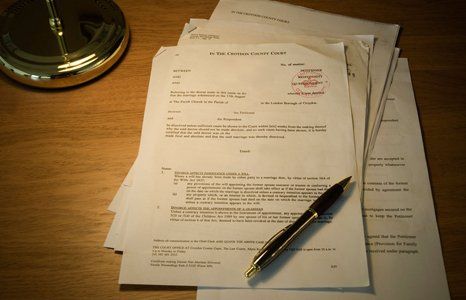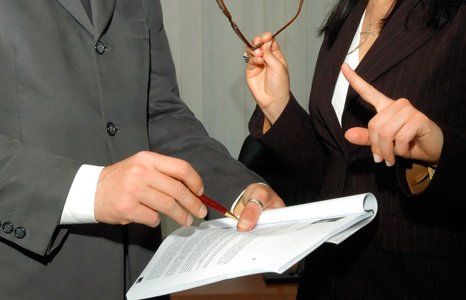News
Latest news from S P Ford & Co. Limited - Leicestershire and London based Liquidators with nationwide presence

Which option is best: Voluntary Liquidation, Compulsory Liquidation or Dissolution?16 January 2024
Which option is best: Voluntary Liquidation, Compulsory Liquidation or Dissolution?
A Creditors’ Voluntary Liquidation, or CVL, allows the Directors and shareholders of a Company to take control of the negative situation they find themselves in.
With a CVL, the Directors choose a Licensed Insolvency Practitioner to act as their nominated Liquidator and work with him or her to bring the Company to an organised and controlled conclusion.
The CVL process will typically take less than a month and there is no Court involvement. A meeting of creditors will need to be held but it is, in truth, rare that creditors attend these with most seeing it frankly as a waste of their time.
Where the Company has physical assets, cash at bank or outstanding, collectible, debtors monies due in, the Liquidator’s fees will be paid by these without any cost to the Directors.
Having selected an Insolvency Practitioner that they feel comfortable with, the Directors will then, if they desire, be able to negotiate with him or her a sensible value for any assets which they may wish to purchase from the Company and, if they wish, they will be able to ensure that they are able to start up a new Company, without the baggage of debts carried by the existing one.
Compulsory Liquidation
A Compulsory Liquidation is normally the result of a creditor, usually but not exclusively HMRC, issuing a Winding Up petition against the Company.
In Compulsory Liquidation the Court, or the creditors, will choose the Liquidator, with a government representative called the Official Receiver often fulfilling that role, especially where there are limited assets available.
With the Compulsory route the Company’s bank account will usually be frozen prior to the Court hearing and it is illegal for Directors to sell assets after the Winding Up petition has been issued.
Dissolution
Dissolution is a route by which a Company can be struck off the Companies House Register without first going through a Liquidation process. However, before a Company can be dissolved creditors must be written to and given the opportunity to object. It is rare that HMRC will allow a Company to be struck off where it has outstanding liabilities.
Even if the Company is dissolved without paying its outstanding debts it is possible for creditors to have the Company restored to the Register at a later date in order to pursue the debts once more. This option therefore fails to give the closure to the situation which Liquidation provides.
Conclusion
Where a Company has outstanding liabilities which, with the best will in the world, it is unable to pay, the option of Creditors’ Voluntary Liquidation provides the Directors with the best method of controlling the situation.
Where the Company has no assets and the Directors would have to pay for the CVL themselves, it is for them to decide how much they are willing or able to pay for the peace of mind which the Voluntary Liquidation option provides. At S P Ford & Co we are sensitive to such situations and happy to negotiate a sensible cost to make this option affordable wherever possible. Call Steve Ford direct on 07718 133 927
to discuss your options.

Can Directors buy back assets through a Liquidation?02 January 2024
Can Directors buy back assets through a Liquidation?
Is your profitable business being held back by historic debt/problems?
Often Directors who approach me for advice are confident that, despite their Company’s current problems, there is a potentially profitable business if only they were able to start over again.
In such circumstances the Directors sensibly ask the question as to whether or not it is possible, if they were to place the Company into Creditors Voluntary Liquidation, for them to purchase the assets of the Company themselves.
The simple answer is, in most cases, yes.
The insolvency legislation, founded upon the basis of encouraging a culture of enterprise, is in fact very supportive of giving businesses, and directors, a second chance. The alternative would be to present Directors with a choice between continuing to trade an insolvent company, with the inherent risk of personal liability, or ceasing to trade entirely with the consequences likely to include redundancies, loss of revenue for the Exchequer and a shrinking national economy.
The most important aspect to this is that a fair value must be paid for any assets, be they physical such as motor vehicles, plant and machinery or stock, or intangible such as goodwill.
In order to ensure that any sale to the Directors is valid an independent valuer would normally be instructed. The valuers that I deal with have a great deal of experience in insolvency valuations and are capable of taking a realistic, pragmatic view as to the price that should be paid in such circumstances, without prejudicing the interests of the Company’s creditors.
If you are a Director of a Company which is struggling to meet its liabilities, which is perhaps under pressure from creditors such as HMRC, but which you feel, with a clean slate, could be profitable, please call me direct on 07718 133 927
and I will be happy to discuss the options available to you.
Steve Ford
Director and Licensed Insolvency Practitioner
Warning Signs for Company Directors20 November 2023
Operating through a Limited Company gives its Directors a great deal of protection. Providing they act in good faith and with their best endeavours, in the event that their Company enters insolvent Liquidation, they will not be held personally liable for the Company’s debts, other than those for which they have given specific personal guarantees.
A Director can however be held liable for Wrongful Trading if he or she should have concluded earlier that there was no reasonable prospect of avoiding Liquidation. In that situation the Director(s) can be held liable for any new debts created beyond that point.
It is therefore imperative that Directors seek advice at the earliest possible opportunity. With the right advice it is usually possible to save the business in some shape or form and, providing you have acted in good faith and depending on circumstances, minimise or even eliminate any personal liability.
Possible warning signs which should lead a Director to consider taking specialist advice include:
- Receiving a County Court Judgement – CCJ
- Pressure from HMRC for late payment or late submission of returns
- New debt arising from HMRC inspection
- Distraint from HMRC
- Bailiff involvement
- Rent arrears
- Struggling to pay creditors on the terms agreed
- Difficulty in paying employees’ wages
- Receiving a Winding Up petition
- Suffering a large bad debt
- Losing a major customer or contract
If any of these circumstances apply to you and your Company please call our Licensed Insolvency Practitioner, Steve Ford, direct on 07718 133 927, for a free confidential chat. Alternatively, complete this contact form
and Steve will give you a call ASAP.
Wrongful trading and the personal liability of Directors of an insolvent Co mpany09 November 2023
Directors may ask, is my Company insolvent and will I be personally liable for its debts?
There are 2 standard tests to establish whether or not a Company is insolvent:
Balance Sheet test
A Company is deemed insolvent where its liabilities exceed its assets.
Cash flow test
If a Company cannot pay its debts as and when they fall due it is insolvent.
Directors of Limited Companies have the protection of limited liability. If their Company enters insolvent liquidation they are not automatically held liable for its debts, except where they have given personal guarantees to creditors.
The issue for Directors arises where they continue to trade their Company after it fails either of the above 2 tests and where there is no reasonable prospect of avoiding liquidation.
It is therefore essential that when a Company becomes insolvent its Directors seek advice from a Licensed Insolvency Practitioner.
In reality many businesses do trade after becoming insolvent. This does not automatically lead to personal liability. If they successfully turn the Company around then the Directors should of course be applauded for bravely persevering through the adversity.
If the Directors do decide that there is a realistic chance that they can turn their Company around despite its technical insolvency they should take the following steps in order to ensure that they are protected if, despite their best endeavours, they are unable to avoid liquidation:
- Take and minute advice from professionals such as the Company accountant and/or a Licensed Insolvency Practitioner
- Take all reasonable steps to ensure that creditors positions do not deteriorate
- Where possible and practical negotiate with any creditors where credit terms have been exceeded to agree extended payment conditions
- Review all overheads including staffing levels and Directors remuneration with a view to making any necessary savings
- Review the Company’s position on a regular basis – ideally weekly, at very least monthly, to ensure that it is moving in the right direction.
If, having taken all of the above steps, Directors feel that creditor pressure is such that the decision whether to place the Company into liquidation will soon be taken out of their hands, then it is advisable to request advice from a Licensed Insolvency Practitioner regarding the possibility of taking other steps to save the business.
The Licensed Insolvency Practitioner will be able to discuss saving the Company via a Company Voluntary Arrangement (CVA), or looking to take the business on without the burden of the current debt via a Creditors’ Voluntary Liquidation (CVL)
or pre-pack Administration.
If you would like to discuss the responsibilities of Company Directors when faced with the possibility of insolvency please feel free to call Steve Ford on 01455 699 737
or 07718 133 927
at any time. Alternatively, please complete this contact form
and Steve will give you a call back ASAP.

Contact Us
Thank you for contacting us.
We will get back to you as soon as possible.
We will get back to you as soon as possible.
Oops, there was an error sending your message.
Please try again later.
Please try again later.
Head Office Address:
S P Ford & Co Ltd, 2 Spring Close, Lutterworth, LE17 4DD
London Office:
Bentinck House, 3-8 Bolsover St, London, W1W 6AB
© 2024. The content on this website is owned by us and our licensors. Do not copy any content (including images) without our consent.




